Key Staff Members

Tobias Hof
DAAD Visiting Professor
Tobias Hof’s research centers on modern European History. He is especially interested in the history of Germany and Italy, international relations, security and Fascism. He is currently finishing his biography on Galeazzo Ciano, Italian Foreign Minister from 1936-1943. By looking at Ciano’s life he wants to examine the functioning of the fascist state apparatus, the international relations as well as the important role of ‘performance’ in fascist politics. His next project will focus on the development of ‘humanitarian regimes’ by analyzing the international food aid to Ethiopia since the 1970s.
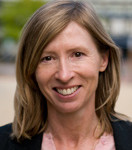
Liesbet Hooghe
Distinguished Professor of Political Science
Liesbet Hooghe is the W.R. Kenan Distinguished Professor of Political Science at the University of North Carolina at Chapel. She was educated in Belgium, and held postdoctoral fellowships at Cornell University, the KU Leuven, and Nuffield (Oxford University). Before joining the UNC faculty in 2000 she taught at the University of Toronto. She is the past Chair of the European Politics and Society Section of APSA (2004-5), and of the European Union Studies Association (2007-9). Her interests lie in the European Union, multilevel governance, decentralization, international organization, political parties, elite studies, public opinion. Her recent books include The European Commission in the 21st Century (OUP, 2013, co-authored) and The Rise of Regional Authority: A Comparative Study of 42 OECD Democracies (Routledge, 2010, with Gary Marks & Arjan H. Schakel). She is currently working with Gary Marks on a multi-volume project on causes and consequences of multilevel governance. She has published a.o. in the APSR, ARPS, British Journal of Political Science, Comparative Political Studies, European Journal of Political Research, European Union Politics, International Organization, JCMS, Journal of Politics, Party Politics, Publius, Regional and Federal Studies, WEP.
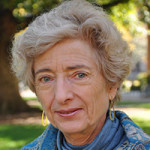
Evelyne Huber
Distinguished Professor of Political Science
Evelyne Huber is Morehead Alumni Professor of Political Science and Chair of the Department of Political Science at the University of North Carolina, Chapel Hill. She studied at the University of Zurich and received both her M.A. (1973) and Ph.D. (1977) from Yale University. She is the author of The Politics of Workers’ Participation: The Peruvian Approach in Comparative Perspective (1980); co-author of Democratic Socialism in Jamaica (with John D. Stephens, 1986); co-author of Capitalist Development and Democracy (with Dietrich Rueschemeyer and John D. Stephens, 1992); co-author of Development and Crisis of the Welfare State (with John D. Stephens, 2001); co-author of Democracy and the Left: Social Policy and Inequality in Latin America (with John. D. Stephens, 2012); co-winner of the Outstanding Book Award 1991-92 from the ASA Political Sociology Section, winner of the Best Book Award 2001 from the APSA Political Economy Section, and winner of the Outstanding Book Awards 2013 from the ASA Sociology of Development Section and the Political Economy of the World System Section. She has also contributed articles to, among others, World Politics, Latin American Research Review, Comparative Politics, Politics and Society, Comparative Political Studies, The Journal of Politics, Studies in Comparative International Development, Comparative Social Research, Political Power and Social Theory, American Journal of Sociology, American Sociological Review, and Economic Perspectives. She received an Honorary Doctorate in the Social Sciences from the University of Bern in 2010, a Guggenheim Fellowship in 2010, and the Distinguished Teaching Award for Post-Baccalaureate Instruction from the University of North Carolina in 2004. She is a former President (2012-13) of the Latin American Studies Association.

Gary Marks
Distinguished Professor of Political Science
Gary Marks is Burton Craige Professor of Political Science at UNC-Chapel Hill. He was educated in England and received his Ph.D. from Stanford University. In 2010 he was awarded a Humboldt Forschungspreis (Humboldt Research Prize) for his contributions to political science. He co-founded the UNC Center for European Studies and EU Center of Excellence in 1994 and 1998, respectively, and served as Director until 2006. Marks has had fellowships and visiting professorships at the Free University of Amsterdam, the Free University of Berlin, the Hanse Wissenschaftskolleg, Pompeu Fabra, the Institute for Advanced Studies Vienna, Sciences Po, Konstanz University, McMaster University, the University of Twente, and was National Fellow at the Hoover Institution. Currently Professor Marks has a five-year grant from the European Research Council for €2.5 million.His teaching and research are chiefly in comparative politics and multilevel governance. He has published over 50 articles and books with 50 or more scholarly citations. His (co-)authored books include Multi-Level Governance and European Integration (2001); It Didn’t Happen Here: Why Socialism Failed in the United States (2001); European Integration and Political Conflict (2004), and The Rise of Regional Authority: A Comparative Study of 42 OECD Democracies (2010).
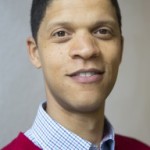
Rahsaan Maxwell
Associate Professor
Rahsaan Maxwell received his BA from the University of Pennsylvania (1998) and his Ph.D. from the University of California, Berkeley (2008). His research examines the politics of ethnic, racial, religious, and immigrant-origin minorities, with a particular focus on Western Europe. He has explored these issues from numerous angles, including political representation, participation, identity, discrimination, and attitudes about government.

Layna Mosley
Professor
Layna Mosley is a Professor of Political Science. Her research and teaching focus on international and comparative political economy, as well as international relations generally.Her research focuses on the connections between the global economy and domestic policy outcomes. Some of her work examines the effect of multinational production on workers’ rights in developing countries, as well as the ways in which U.S. trade policies might affect workers’ rights abroad. With respect to labor rights, she also interested in efforts at private sector governance, such as the Bangladesh Accord on Building and Fire Safety. Another stream of her research focuses on the politics of sovereign debt, and on how professional investors evaluate and react to political institutions and government policy choices.

Richard E. Meyers
Henry Brandis Distinguished Professor of Law
A native of Kingston, Jamaica, Myers was a Chancellors Scholar at the UNC School of Law, where he graduated with high honors in 1998. Upon graduation from law school, he clerked in Washington, D.C., for the Hon. David Sentelle on the United States Court of Appeals for the D.C. Circuit, and then entered private practice as a litigator for O’Melveny & Myers, LLP, in Los Angeles California. After two years with the White Collar Criminal Law and Environmental and regulatory Compliance Practice Group, he left private practice in January 2002 to become an Assistant United States Attorney in the Central District of California. In September, 2002, he transferred to the Eastern District of North Carolina in Raleigh, where he prosecuted white collar and violent crimes, and headed the district’s Violent Crimes Task Force for Wilmington and New Hanover and Pender Counties. Myers joined the UNC Law School faculty in July 2004. He teaches Criminal Law, Criminal Procedure, Ethics, and a seminar on White Collar Crime.
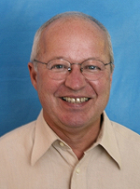
Ron Rindfuss
Research Professor
Ronald Rindfuss is the Robert Paul Ziff Distinguished Research Professor of Sociology at the University of North Carolina at Chapel Hill, and a Senior Fellow at the East-West Center in Honolulu. He was elected a Fellow of the American Association for the Advancement of Science in 1992, directed the Carolina Population Center from 1992 to 1997, and served as President of the PAA in 1991-1992. Papers Rindfuss coauthored received the 2000 Erdas Award for Best Scientific Paper in Remote Sensing from the American Society for Photogrammetry and Remote Sensing and the 2011 award for Distinguished contribution to Scholarship in Population presented by the Population Section of the American Sociological Association.
Rindfuss has had a longstanding interest in social factors affecting fertility. He has argued that institutional factors, primarily operating at the country level, are crucial. While he has used this perspective to study fertility change and variation in developed and developing countries, his more recent work has focused on explaining variation in low fertility among high and middle income countries.
Over a successful career of almost four decades, Ron has mentored numerous PhD students and postdoctoral fellows, many of whom have become successful demographers and sociologists themselves. Ron has also nurtured productive collaborative relationships with many colleagues, in Chapel Hill and around the world.
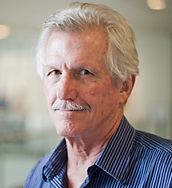
John D. Stephens
Distinguished Professor of Political Science
John D. Stephens, Gerhard E. Lenski, Jr., Distinguished Professor of Political Science and Sociology; Director, Center for European Studies, European Union Center of Excellence, and Trans-Atlantic Masters program; received his B.A. (1970) from Harvard University and his Ph.D. (1976) from Yale University. His main interests are comparative politics and political economy, with area foci on Europe, the Antipodes, Latin America, and the Caribbean. He teaches European politics and the political economy of advanced industrial societies. He is the author of The Transition from Capitalism to Socialism (1979) and coauthor of Democratic Socialism in Jamaica (with Evelyne Huber, 1986), Capitalist Development and Democracy (with Evelyne Huber and Dietrich Rueschemeyer, 1992; Outstanding Book Award, Political Sociology Section, ASA), Development and Crisis of the Welfare State (with Evelyne Huber, 2001; Best Book Award, Political Economy Section, APSA), and Democracy and the Left: Social Policy and Inequality in Latin America (with Evelyne Huber, 2012, Outstanding Book Award, Sociology of Development Section, ASA; Best Book Award, Political Economy of the World System Section, ASA). He has also contributed articles to, among others, The American Political Science Review, American Journal of Sociology, American Sociological Review, The British Journal of Sociology, Comparative Politics, Comparative Political Studies, Journal of European Social Policy, and World Politics. He is currently working on a study of social investment policy in Europe and Latin America.

Milada A. Vachudova
Jean Monnet Chair
Milada Anna Vachudova specializes in the democratization of postcommunist Europe, the enlargement of the European Union, and the impact of international actors on domestic politics. She is an Associate Professor of Political Science at the University of North Carolina at Chapel Hill. Her book, Europe Undivided: Democracy, Leverage and Integration After Communism, was published by Oxford University Press in 2005. It analyzes how the leverage of an enlarging EU has influenced domestic politics and facilitated a convergence toward liberal democracy among credible future members of the EU in Central and Eastern Europe. Europe Undivided has been awarded the XIIth Stein Rokkan Prize for Comparative Social Science Research. This is a major international prize awarded biennially by the International Social Science Council. Europe Undividedis also a co-winner of the 2006 Marshall Shulman Prize awarded by the American Association for the Advancement of Slavic Studies. Professor Vachudova is now working on her second book project comparing the experience of democratization and international engagement in the Western Balkans since 1995. Professor Vachudova has held fellowships and research grants from the European University Institute in Italy, the Center for European Studies at Harvard University, the European Union Center at Columbia University, the Center for International Studies at Princeton University, the Belfer Center for Science and International Affairs at Harvard University, the National Science Foundation, the Woodrow Wilson Center and the National Council for Eurasian and East European Research. She received a BA from Stanford University in 1991. As a British Marshall Scholar and a member of St. Antony’s College, she completed a D.Phil. in the Faculty of Politics at the University of Oxford in 1997.
